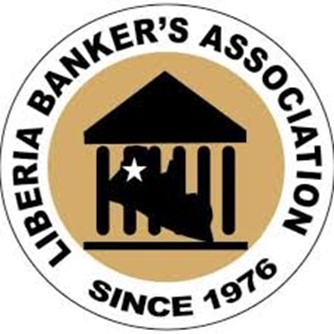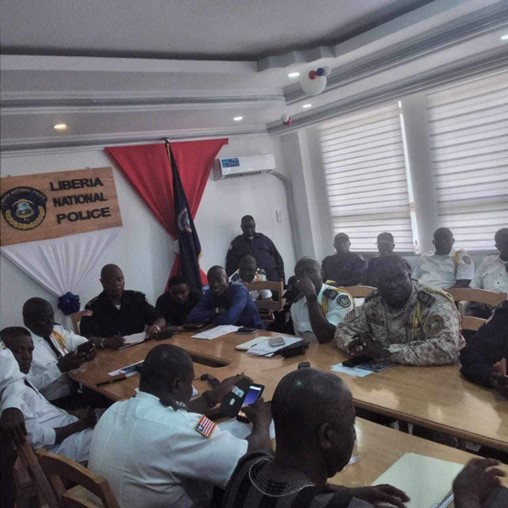Liberia is a developing country with a rich history. The country’s economy is heavily reliant on natural resources, such as iron ore, rubber, and timber. The government is working to diversify the economy and create more jobs. The banking sector plays a crucial role in supporting this effort.
The Liberian banking sector consists of a diverse range of financial institutions, including commercial banks, microfinance institutions, and specialized financial service providers. These institutions offer a wide array of financial services to individuals, businesses, and the government.
These banks provide essential financial services to businesses and individuals. They play a crucial role in facilitating trade by providing services that help businesses manage the risks associated with international trade and make it easier for them to conduct business with foreign partners. This contributes to the growth of exports and imports, which are essential for Liberia’s economic development.
Banks in Liberia also support investment by providing loans and other financial instruments to businesses seeking to invest in the Liberian economy. These investments create new jobs, increase productivity, and contribute to economic growth. Additionally, Liberian banks provide advisory services to investors, helping them navigate the investment landscape and make informed decisions.
Essentially, banks in the Liberian financial space play a crucial role in driving Liberia’s economic growth by providing essential financial services that fuel investment, innovation, and job creation. Their ability to mobilize savings, provide credit, and manage risk underpins a healthy and vibrant economy.
By facilitating trade and investment, banks enable businesses to expand operations, create new products and services, and hire more workers. This in turn leads to increased economic activity, higher productivity, and improved living standards for individuals and communities. Recent events, however, have threatened an existential crisis for Liberian banks.
The Problem
The Liberia Bankers’ Association (LBA) expresses concern over challenges member banks face in navigating the Liberian judicial system. Member banks in Liberia are facing some significant challenges related to the judicial system, impacting their operations and financial stability. These challenges are creating a climate of uncertainty and discouraging investment in the banking sector.
Two key issues are particularly problematic: frivolous monetary judgments against banks and delays in settling debt recovery actions brought by banks. These issues are not only costly but also damaging to the reputation of the banking sector, eroding public trust and hindering the ability of banks to effectively serve their customers.
Windfall Judgements for Frivolous Cases
A significant challenge faced by banks in Liberia is the prevalence of frivolous
suites against them. This issue arises from cases where individuals or entities file lawsuits against banks seeking substantial financial
compensation without sufficient legal grounds or evidence. The lack of a robust legal framework for vetting such claims has led to a situation where banks are burdened with defending themselves against unfounded accusations.
These frivolous suites often stem from a combination of factors, including manipulation of the legal system and an insufficient focus on the due process within the judicial system. The impact of such judgments on banks is significant, as they can lead to financial losses, reputational damage, and an erosion of public trust.
Delay in Settlement of Cases
Banks in Liberia are experiencing substantial delays in the resolution of debt recovery actions brought before the courts. This protracted legal process significantly impacts the operations of banks. Delays in judgments can tie up valuable resources and hinder the ability of banks to resolve disputes efficiently.
The slow pace of judicial proceedings can also erode public trust in the banking sector. When cases remain unresolved for extended periods, it creates an impression of inefficiency and lack of accountability. This can ultimately discourage individuals and businesses from engaging with the banking system.
Impact on Bank Operations
The frivolous judgments and delays in resolving cases have had a significant impact on the operations of member banks. Banks are forced to allocate substantial resources to address these legal challenges, diverting funds from core banking activities. The uncertainty surrounding the legal environment creates an environment of risk aversion, making it challenging for banks to attract investors and extend loans to businesses.
The continued prevalence of frivolous monetary judgments and delays in resolving debt cases initiated by banks against delinquent borrowers within Liberia’s judicial system pose significant risks to the stability of the banking sector. These challenges create a hostile environment for banks, deterring investment and eroding public trust in the financial system.
First, frivolous lawsuits and delayed legal processes damage public confidence in the banking system. People may become hesitant to deposit their money in banks, fearing that it could be lost due to unfair judgments. This can lead to a decline in bank deposits and lending, hindering economic growth and financial stability. The public may lose faith in the ability of banks to protect their assets and ensure financial security.
Second, the persistent judicial challenges and unresolved cases create a climate of uncertainty for investors. Potential investors may hesitate to commit capital to a banking sector facing significant legal hurdles. This reluctance can negatively impact economic growth and development, as a stable and predictable financial system is essential for attracting foreign direct investment and fostering domestic entrepreneurship.
Third, the perception of a weak and unreliable judicial system can deter investors from considering Liberia as a destination for their capital. The lack of confidence in the legal framework can lead to a loss of investor trust, making it difficult for banks to secure the necessary funding to expand their operations and provide essential financial services to businesses and individuals.
Fourth, the ongoing challenges in the Liberian judicial system pose a serious threat to the stability of the country’s financial sector. The lack of confidence in the court system can lead to a decline in investments, deterring both local and international investors from engaging in the Liberian economy. This can have a ripple effect, impacting the growth and development of the entire nation.
Fifth, the potential for bank failures due to frivolous judgments or delays in resolving cases could further exacerbate the situation, triggering a loss of public trust in banks and the banking system as a whole. This loss of trust could lead to a withdrawal of deposits, causing a liquidity crisis and potentially even a collapse of the financial system.
Finally, the continuous onslaught of frivolous lawsuits and delays in resolving bank-related cases poses a significant threat to the stability of the Liberian banking sector. If left unchecked, these challenges could ultimately contribute to bank failures. The collapse of even one bank could have a ripple effect throughout the economy, triggering a financial crisis with dire consequences for businesses, individuals, and the overall financial landscape of Liberia.
In conclusion, if these issues persist unabated, they could lead to a cascade of negative consequences, including a decrease in lending activity, increased costs for banks, and a reluctance among international investors to engage with the Liberian financial market. These consequences could ultimately impact the ability of banks to effectively serve their customers, potentially hindering economic growth and development.
The Need for a Collaborative Solution
The current situation in Liberia’s banking sector calls for a collaborative approach involving all relevant stakeholders. This is not simply a matter of the Liberia Bankers’ Association (LBA) taking action, but rather a shared responsibility for restoring trust, ensuring stability, and fostering growth in the financial sector.
Improvements are needed in the judicial system to address issues of delays, frivolous judgments, and lack of accountability. The LBA seeks to actively engage with the government and the judiciary to advocate for necessary changes. The LBA believes that open dialogue and negotiation, given the mutually symbiotic nature of the relationship that exists between banks and other stakeholders, are essential for finding common ground and building trust among all stakeholders.
Collaboration is, therefore, key to finding sustainable solutions to the challenges faced by the banking sector. This requires a commitment from all stakeholders to work together, address underlying issues, and create a more stable and prosperous environment for everyone.
In this direction, the LBA seeks to initiate dialogue with government officials, including the Ministry of Justice, the Central Bank of Liberia, the National Legislature, and the Judiciary. This dialogue aims to establish a clear understanding of the concerns of the banks and explore potential solutions together.
Both the LBA and the government need to focus on finding common ground and identifying areas of compromise. This includes addressing the concerns of the banks while ensuring the integrity and fairness of the legal system. Collaborative solutions are more likely to be successful and sustainable.
A healthy and stable financial sector, which is the goal sought by the LBA in advocating a collaborative approach to resolving these issues, is essential for economic growth and development in any country. When the financial sector is functioning well, it contributes to increased productivity, job creation, and improved living standards.
The challenges faced by the banking sector in Liberia, including frivolous lawsuits and delays in court proceedings, however, can have a detrimental impact on economic growth. These challenges can create uncertainty and instability, discouraging investment and hindering the development of businesses. This, more so than anything else, succinctly underlines the importance of addressing these issues that have had such devastating consequences for banks in Liberia.







